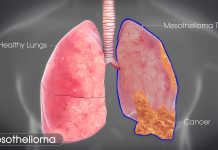This article will provide you with helpful tips to reduce your risk of future health problems. Health is everything; there is no compromise on health issues. Hence, you have to spare time for your health in any case. There are many well-known risk factors that lead to chronic diseases, like:
-
Heart disease
-
Stroke
-
Diabetes
-
Chronic obstructive pulmonary disease (COPD)
-
Some cancers
Keep in mind that some risk factors cannot be changed, such as age, gender, family history, and ethnicity. However, many factors are within your control and are related to your lifestyle choices and personal habits. The more risk factors you have, the greater your risk of chronic disease. So, be selective in your diet plans and leave all bad eating habits behind. It will ease your future.
Blood Pressure
The most dangerous disease is high blood pressure or hypertension, which is well known as the “silent killer.” It does not usually make you feel ill. If you leave it untreated, then high blood pressure can lead to conditions such as heart attack, kidney failure, or stroke. Normal blood pressure readings should be between 120/80 and 129/84. High normal readings are between 130/85 and 139/89.
Tips to control your blood pressure:
-
Reduce salt intake
-
Follow eating-well food plans
-
Participate in regular physical activities
-
Achieve and maintain a healthy weight
-
Avoid or limit alcohol usage
-
Be tobacco-free. It is a killer activity for your heart and lungs.
-
Find healthy ways to manage stress and anxiety.
-
Follow your doctor’s instructions when taking medication.
-
Check your blood pressure regularly
Eating Habits
Eating more fruits, vegetables, fiber, and low-fat dairy products can diminish your risk of obesity. Hence, it helps to stay away from diabetes, hypertension, heart disease, strokes, some cancers, and kidney disease. Other benefits include increased energy and healthier bones.
What to aim for:
-
Make an eating plan after the consultation with your nutritionist. Eating well for the detailed recommended serving sizes
The range for adults is:
-
Vegetables and Fruit: 7 to 10 servings per day
-
Grain Products: 6 to 8 servings per day
-
Milk and Alternatives: 2 to 3 servings per day
-
Meat and Alternatives: 2 to 3 servings per day
-
Adequate sodium intake is between 1200 and 1500 mg per day. Note that 1/2 teaspoon salt = 1200 mg.
Tips to Healthy Eating:
-
Reduce salt (sodium) intake in your routine life
-
Cut down on packaged and processed foods
-
Take the salt shaker off the table
-
Avoid adding salt when cooking. Add less than the requirement.
-
It is good to use herbs, spices, or lemon juice
-
Avoid fast foods, the most dangerous foods in the modern era.
-
Choose foods low in saturated and trans fats
-
Trim visible fat; remove the skin on poultry
-
Use cooking methods such as roasting, baking, and poaching
-
Reduce intake of butter and choose low-fat cheese
-
Drink water (approx. 6 to 8 glasses per day). If you have heart failure or renal failure, all fluid sources may be limited.
Please check with your Health Care Provider
-
Avoid or limit alcohol use
-
Limit pop and other high-sugar drinks
-
Include more fiber in your diet; choose whole grains, high-fiber bread and cereals, brown rice, beans, and lentils.
-
Log your eating for a week to see where you can make more healthy choices.
Physical Activity
Physical activity improves blood circulation, helps with weight control and blood sugar levels, and improves blood pressure and cholesterol levels. Physical activities also help develop bone and muscle strength, endurance, and flexibility. Physical activity increases energy, improves sleeping, helps manage stress, prevents constipation, and improves your ability to participate in family and social outings.
What to aim for:
-
At least 150 minutes of moderate-to-vigorous aerobic physical activity per week, in bouts of 10 minutes or more.
-
Examples of moderate activities are:
-
Brisk walking or biking
-
Swimming or water aerobics
-
Dancing
-
Raking leaves and grass
Some people should check with their healthcare providers before they start becoming more physically active. If you have a heart condition, feel pain in your chest during physical activity, lose your balance because of dizziness, or are over the age of 69, you should talk with your health care provider before you start becoming much more physically active.
Tips to increase your physical activity:
-
Choose an activity you enjoy
-
Exercise with a partner or friends
-
Build physical activity into your daily routine, walk whenever you can, use the stairs instead of the elevator
-
Start slowly and gradually increase over time
-
Do the activities you are doing now, more often
Weight
Achieving a healthy weight can improve your blood pressure and help lower your risk of type 2 diabetes and high cholesterol. If you are overweight, even a small decrease in weight can lead to big rewards in health.
What to aim for:
Your waist size should be less than 40 inches (102 cm) for men and less than 35 inches (88 cm) for women. To measure, place a tape measure about 2 inches above your belly button. Your pant size does not equal your waist size. Your Body Mass Index (BMI) should be 18.5 to 24.9
Tips to maintain a healthy weight:
-
Follow Eating Well with Food Guide
-
Participate in regular physical activity
-
Drink 6–8 glasses of water each day. If you have heart failure or renal failure, all fluid sources may be limited. Please check with your Health Care Provider
-
Identify your temptations and barriers to change
-
Set realistic goals and make a plan
-
Find healthy ways to manage stress
Cholesterol
High levels of cholesterol (bad fat) can lead to a buildup in your arteries, which can cause heart disease and stroke. Small changes towards eating well and being active can make a difference in your cholesterol levels. LDL is “bad” cholesterol and HDL is “good” cholesterol. Cholesterol levels are measured by a blood test ordered by your health care provider.
What to aim for:
-
Total Cholesterol: less than 5.2 mmol/L
-
LDL (bad fat): less than 3.5 mmol/L less than 2.0 mmol/L if you have diabetes, heart disease, or strokes
-
HDL (good fat): greater than 1.0 mmol/L for men and greater than 1.3 mmol/L for women
Tips to control cholesterol:
-
Eat foods high in fiber
-
Eat foods low in saturated and trans fats
-
Stick to the plan and eat well.
-
Participate in regular physical activity
-
Be tobacco-free. It is injurious to your health
-
Take medications as prescribed by your Health Care Provider
Tobacco Use
All forms of tobacco use, including secondhand smoke, cause damage to arteries and other body tissues. This can lead to heart disease, stroke, kidney disease, lung cancer, and chronic obstructive pulmonary disease (COPD). Being tobacco-free is an important health behavior change for preventing chronic disease.
What to aim for:
-
Tobacco-free
-
Smoke-free environment Tips to become tobacco-free:
-
Cut down gradually
-
Set a date to quit
-
Contact community or provincial smoking cessation programs
-
Ask your Health Care Provider about ways to help you quit
-
Make your home and vehicle smoke-free
Alcohol Use
If you are pregnant, breastfeeding, taking medications that interact with alcohol, suffering from a serious physical or mental illness, or having alcohol dependence, it is safest not to drink alcohol. Drinking too much alcohol can cause physical and mental health problems, including high blood pressure, liver disease, cancer, depression, and alcohol dependency.
What to aim for:
If you choose to drink, the National Low-Risk Drinking Guidelines recommend:
-
0–2 standard drinks* per day for women; no more than 10 standards per week
-
0–3 standard drinks* per day for men; no more than 15 standards per week
-
Always have non-drinking days each week
-
One standard drink is equal to 12 oz. of (5% alcohol) beer, 5 oz. of (12.5% alcohol) wine, or 1.5 oz. of (40% alcohol) spirits.
Tips to manage alcohol intake:
If you do not drink already, don’t start Drink nonalcoholic drinks or drink water between drinks Eat before or while you are drinking If you have trouble following these guidelines or are concerned about the effects of alcohol use, talk to your health care provider or community mental health and addictions expert.
Diabetes
People with diabetes tend to have higher blood pressure, higher cholesterol, and higher blood sugar. People with diabetes are at a much greater risk of having a stroke or heart attack.
What to aim for:
-
Fasting blood sugars between 4 and 7 mmol/L
-
2 hours after meal sugars should be between 5 and 10 mmol/L
-
A1c (average blood sugar level over 3 months) readings equal to or less than 7.0%
Tips to manage diabetes:
-
Monitor blood sugars
-
Participate in regular physical activity
-
Follow recommended diet
-
Take medications as prescribed by your Health Care Provider
-
Attend appointments and classes with a Diabetes Educator
-
Ask your health care provider about annual screenings for diabetes complications for your eyes, kidneys, and feet.
Stress
Everyone has stress; however, if we have too much stress, it can lead to physical and mental health problems. Too much stress can increase blood cholesterol levels and blood pressure, increasing your risk for heart disease and stroke. Chronic sleep loss can increase the risk of heart disease, stroke, diabetes, obesity, anxiety, and depression. So, take the routine of life as normal, don’t overthink, and just be relaxed. Things are happening to be normal as the times go. Stress can damage your life in a bad way. It will disturb your whole life pattern. You need to be very careful to take things seriously.
What to aim for:
-
7 to 9 hours of sleep is a must for most adults. It refreshes your mind and body.
-
Your stress Index should be less than 14
Tips to manage stress:
-
Get the sleep you need. Sometimes, take an extra nap to control stress.
-
Keep a regular sleeping schedule. Try to go to sleep early and wake up early.
-
Avoid caffeine, nicotine, late-night activities, and alcohol, as they can interfere with your sleep
-
Avoid intense exercise just before bedtime. A light stroll after dinner is good.
-
Establish a bedtime ritual to signal your body it is time to sleep
-
Take time for yourself and do the things you enjoy.
-
Develop different ways to relax. i.e., early morning walk, bird watching, enjoying nature, sports, gardening, and many more.
-
Eat a healthy diet
-
Participate in regular physical activity
-
Create realistic expectations
-
Focus on what you can do
-
Share your feelings and build healthy relationships with your partner, family members, or even friends.






